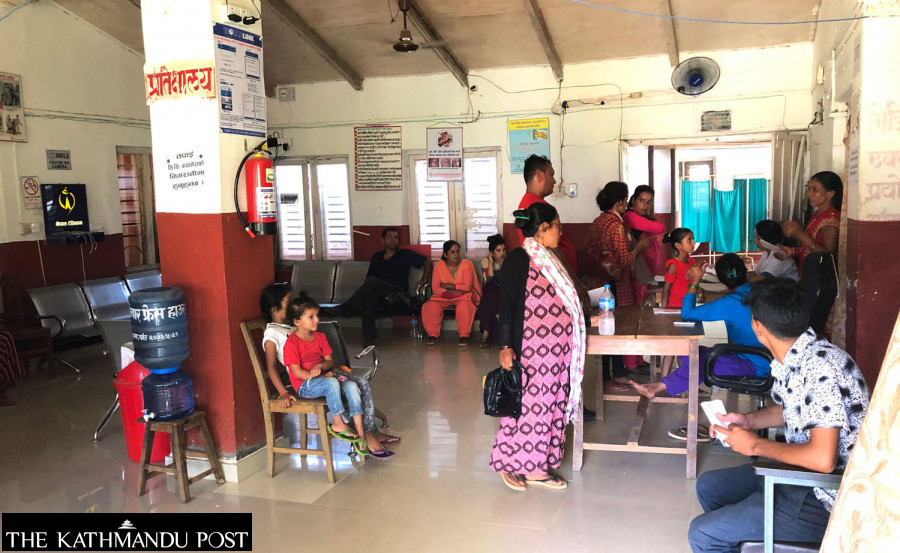Health
Three more people test positive for cholera in Kathmandu
The number of cholera infections in Kathmandu Valley has reached seven since Sunday.
Arjun Poudel
Additional three diarrheal patients each from Dillibazar, Balaju and Balkhu in Kathmandu tested positive for cholera on Wednesday and Thursday.
According to the Epidemiology and Disease Control Division, a 34-year-old male patient from Dillibazar area, an 18-year-old male patient from Balaju and a 34-year-old woman from Balkhu area tested positive for Cholera.
“Vibrio cholera 01 Ogawa serotype has been confirmed in stool samples of all infected patients,” said Dr Chuman Lal Das, director of the division.
Cholera is a highly infectious disease that causes severe diarrhoea and vomiting, which causes dehydration and can lead to death within a few hours if left untreated. The World Health Organisation says cholera is a global threat to public health and an indicator of inequality and a lack of social development.
With the confirmation of the three new cases of cholera, the number of patients infected with the highly contagious fatal disease has reached seven so far since Sunday.
According to the division, some of the infected patients have been admitted to the intensive care unit of the Sukraraj Tropical and Infectious Disease Hospital, as their health conditions are serious.
Infection of the deadly disease was confirmed by the National Public Health Laboratory, which tested stool samples of infected patients.
Officials said that E.coli and Coliform, the microbes found in human faeces have been detected in water samples of two patients from Bagbazar area, who had tested positive for cholera on Sunday.
According to Basanta Adhikari, chief of the Kathmandu Health Office, three water samples—two from water taps and one from a tube well—were collected for testing.
“Presence of E. coli in water means it is contaminated with microbes found in human faeces,” Adhikari said. “It causes diarrhoeal diseases including cholera.”
Doctors warn of cholera outbreaks caused by contaminated water with the increase in rainfall and disruption in garbage collection in Kathmandu Valley.
In October last year, Vibrio cholera outbreak in several local units of Kapilvastu district killed at least four people including three minors—boys aged seven and two, and a five-year-old girl. Another deceased was a 45-year-old man.
Following the outbreak, the Health Ministry had launched a mass vaccination drive against the disease after all its attempts failed to curb the infection.
The UN health agency says that a multifaceted approach is key to controlling cholera and reducing deaths.
Doctors say launching awareness drives against water-borne diseases and ensuring safe drinking water are the only ways to save people from dying of water-borne diseases, including cholera.
A combination of surveillance, water, sanitation and hygiene, social mobilisation, and treatment is required to contain the spread of the infection, according to doctors.




 14.24°C Kathmandu
14.24°C Kathmandu















